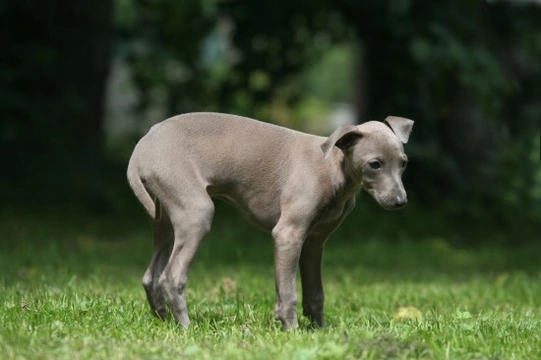
Constipation in dogs
Constipation in dogs is an uncomfortable and sometimes even painful condition that leads to a difficulty in passing stools. This can be caused by a variety of factors, including a blockage of the digestive tract, faeces that are too hard to pass comfortably, feeding an inappropriate diet, or impacted faeces.
Constipation is one of the most commonly occurring digestive disorders of dogs, and most dogs will suffer from a bout of constipation at some point over the course of their lives. If you want to learn more about constipation in dogs, what may cause it, how to identify it and how to treat it, read on to learn more.
What causes constipation?
The term “constipation” refers to infrequent, difficult, painful defecation or the total absence of it altogether. Normal well-nourished dogs will pass firm but not hard stools normally once or twice a day; any less frequently than this may be a sign of constipation. Constipation can be caused by a wide variety of factors, including:
- Dehydration, leading to not enough moisture content being present in the stools, making them hard to pass
- Ingesting foreign bodies or non-foodstuffs such as fur and hair, cloth or other items can lead to the faeces present in the intestine mixing with the foreign bodies to form a hard mass that cannot be passed
- Behavioural unwillingness to defecate when needed, for instance if left indoors for long periods of time without breaks to go out
- A diet that is too low in fibre, making the stools too hard to pass normally
- A range of health problems and diseases including hormonal problems and dietary disorders
Dietary issues
Feeding a diet that is not nutritionally complete and fit for your dog’s age and activity level often presents itself as a digestive disorder, most commonly either diarrhoea or constipation. Feeing a diet that is high in protein and low in fibre is the most common cause of dietary-induced constipation, while feeding foods high in fat will often have the opposite effect; diarrhoea.
Symptoms of constipation in dogs
Constipation is uncomfortable and can often be painful for your dog, and can lead to a lot of discomfort when attempting to pass stools. Not only this, but if left untreated, constipation can lead to a range of other health problems including potentially life-threatening impactions and blood poisoning. It is important to know what the symptoms of constipation in dogs are, in order to identify a potential bout during the early stages so that you can take action. Be on the lookout for:
- Straining to pass stools, often for prolonged periods of time
- Small, hard stools that do not appear to be as prolific as your dog’s usual productions
- A small amount of liquid discharge from the back end in the absence of defecation when trying to pass stools
- Obvious signs of pain when going to the toilet, such as yelping
- Swelling or inflammation around the back end
- Soreness around the back end
- A swollen, distended abdomen that may well be painful to the touch
- “Scooting” behaviour; dragging the back end across the ground while paddling with the front legs
- Loss of appetite and disinterest in food
- Vomiting or attempting to vomit or regurgitate food
- Grass eating, particularly in large quantities
- Lethargy and general disinterest in everyday goings on
- Depression and a generally flat mood
Treating constipation at home
One-off occasional bouts of constipation in dogs will often resolve themselves naturally and not recur. In this case, constipation is not cause for alarm, although you should assess your dog’s lifestyle and try to identify anything that may have led to their constipation; such as dietary issues, or being left for too long without being able to go to the toilet.
Some straightforward ways to encourage occasional bouts of constipation in dogs to pass naturally without veterinary intervention include:
- Giving your dog plenty of opportunity to go to the toilet and letting them out as often as necessary and for as long as necessary to make their attempts
- Feeding high fibre foods
- Feeding a diet of wet food or soaking dry food in water before serving
- Ensuring that your dog consumes enough fluids, and encouraging them to drink water when constipated
- Allowing your dog to eat grass, if they choose to do so
- Feeding a dog-safe supplement with a natural laxative effect, such as pumpkin, in small quantities
Veterinary treatment for constipation
If your dog is constipated for more than 48 hours, appears to be in pain, or suffers from persistent or recurrent bouts of constipation, you should seek veterinary advice.
- Not only can your vet prescribe and administer a dog-safe laxative or manually express the bowel to help your dog to pass faeces, they may also decide to administer an enema or stool softener to help your dog to pass stools naturally.
- In severe cases, surgical intervention may be required to remove a significant impaction or foreign body, and it is important that treatment is sought sooner rather than later in order to address the problem before the condition worsens.
- Your vet may also wish to run further diagnostic tests to identify the presence of any additional or underlying health condition that may be causing constipation, and be able to provide guidance on how to prevent future recurrences of constipation in your dog.



